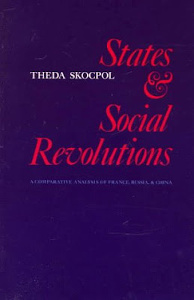Related Research Articles

Altaic is a controversial proposed language family that would include the Turkic, Mongolic and Tungusic language families and possibly also the Japonic and Koreanic languages. The hypothetical language family has long been rejected by most comparative linguists, although it continues to be supported by a small but stable scholarly minority. Speakers of the constituent languages are currently scattered over most of Asia north of 35° N and in some eastern parts of Europe, extending in longitude from the Balkan Peninsula to Japan. The group is named after the Altai mountain range in the center of Asia.
Personality psychology is a branch of psychology that examines personality and its variation among individuals. It aims to show how people are individually different due to psychological forces. Its areas of focus include:
Linguistic typology is a field of linguistics that studies and classifies languages according to their structural features to allow their comparison. Its aim is to describe and explain the structural diversity and the common properties of the world's languages. Its subdisciplines include, but are not limited to phonological typology, which deals with sound features; syntactic typology, which deals with word order and form; lexical typology, which deals with language vocabulary; and theoretical typology, which aims to explain the universal tendencies.
A case study is an in-depth, detailed examination of a particular case within a real-world context. For example, case studies in medicine may focus on an individual patient or ailment; case studies in business might cover a particular firm's strategy or a broader market; similarly, case studies in politics can range from a narrow happening over time like the operations of a specific political campaign, to an enormous undertaking like, world war, or more often the policy analysis of real-world problems affecting multiple stakeholders.
Typology is the study of types or the systematic classification of the types of something according to their common characteristics. Typology is the act of finding, counting and classifying facts with the help of eyes, other senses and logic. Typology may refer to:

Quantitative research is a research strategy that focuses on quantifying the collection and analysis of data. It is formed from a deductive approach where emphasis is placed on the testing of theory, shaped by empiricist and positivist philosophies.
Level of measurement or scale of measure is a classification that describes the nature of information within the values assigned to variables. Psychologist Stanley Smith Stevens developed the best-known classification with four levels, or scales, of measurement: nominal, ordinal, interval, and ratio. This framework of distinguishing levels of measurement originated in psychology and has since had a complex history, being adopted and extended in some disciplines and by some scholars, and criticized or rejected by others. Other classifications include those by Mosteller and Tukey, and by Chrisman.

States and Social Revolutions: A Comparative Analysis of France, Russia and China is a 1979 book by Theda Skocpol, published by Cambridge University Press, that examines the causes of social revolutions.
In media studies, mass communication, media psychology, communication theory, and sociology, media influence and themedia effect are topics relating to mass media and media culture's effects on individuals' or audiences' thoughts, attitudes, and behaviors. Through written, televised, or spoken channels, mass media reach large audiences. Mass media's role in shaping modern culture is a central issue for the study of culture.

Positive youth development (PYD) programs are designed to optimize youth developmental progress. This is sought through a positivistic approach that emphasizes the inherent potential, strengths, and capabilities youth hold.PYD differs from other approaches within youth development work in that it rejects an emphasis on trying to correct what is considered wrong with children's behavior or development, renouncing a problem-oriented lens. Instead, it seeks to cultivate various personal assets and external contexts known to be important to human development.

Typology in Christian theology and biblical exegesis is a doctrine or theory concerning the relationship of the Old Testament to the New Testament. Events, persons or statements in the Old Testament are seen as types prefiguring or superseded by antitypes, events or aspects of Christ or his revelation described in the New Testament. For example, Jonah may be seen as the type of Christ in that he emerged from the fish's belly and thus appeared to rise from death.
In archaeology, a typology is the result of the classification of things according to their physical characteristics. The products of the classification, i.e. the classes, are also called types. Most archaeological typologies organize portable artifacts into types, but typologies of larger structures, including buildings, field monuments, fortifications or roads, are equally possible. A typology helps to manage a large mass of archaeological data. According to Doran and Hodson, "this superficially straightforward task has proved one of the most time consuming and contentious aspects of archaeological research".
Designing Social Inquiry: Scientific Inference in Qualitative Research is an influential 1994 book written by Gary King, Robert Keohane, and Sidney Verba that lays out guidelines for conducting qualitative research. The central thesis of the book is that qualitative and quantitative research share the same "logic of inference." The book primarily applies lessons from regression-oriented analysis to qualitative research, arguing that the same logics of causal inference can be used in both types of research.

Various sociological classifications of religious movements have been proposed by scholars. In the sociology of religion, the most widely used classification is the church-sect typology. The typology is differently construed by different sociologists, and various distinctive features have been proposed to characterise churches and sects. On most accounts, the following features are deemed relevant:
Alexander L. George was an American behavioral scientist. He was the Graham H. Stuart Professor of Political Science Emeritus at Stanford University. He made influential contributions to political psychology, international relations, and social science methodology.
Linguistics is the scientific study of language. The modern-day scientific study of linguistics takes all aspects of language into account — i.e., the cognitive, the social, the cultural, the psychological, the environmental, the biological, the literary, the grammatical, the paleographical, and the structural.
Process tracing is a research method used to develop and test theories. It is generally understood as a "within-case" method to draw inferences on the basis of causal mechanisms. It has been used in social sciences, as well as in natural sciences.
Psychological typologies are classifications used by psychologists to describe the distinctions between people. The problem of finding the essential basis for the classification of psychological types—that is, the basis of determining a broader spectrum of derivative characteristics—is crucial in differential psychology.
Scott DeLancey is an American linguist from the University of Oregon. His work focuses on typology and historical linguistics of Tibeto-Burman languages as well as North American indigenous languages such as the Penutian family, particularly the Klamath. His research is known for its diversity of its thematic and theoretical reach.

Building typology refers to the study and documentation of buildings according to their essential characteristics. In architectural discourse typological classification tends to focus on building function (use), building form, or architectural style. A functional typology collects buildings into groups such as houses, hospitals, schools, shopping centers, etc. A formal typology groups buildings according to their shape, scale, and site placement, etc. Lastly, a stylistic typology borrows from art history and identifies building types by their expressive traits, e.g. Doric, Ionic, Corinthian, baroque, rococo, gothic, arts and crafts, international, post-modern, etc.
References
- 1 2 Earl Babbie (1 January 2012). The Practice of Social Research. Cengage Learning. p. 184. ISBN 1-133-04979-6.
- 1 2 George, Alexander L.; Bennett, Andrew (2005). Case Studies and Theory Development in the Social Sciences. MIT Press. pp. 233–262. ISBN 978-0-262-30307-1. OCLC 944521872.